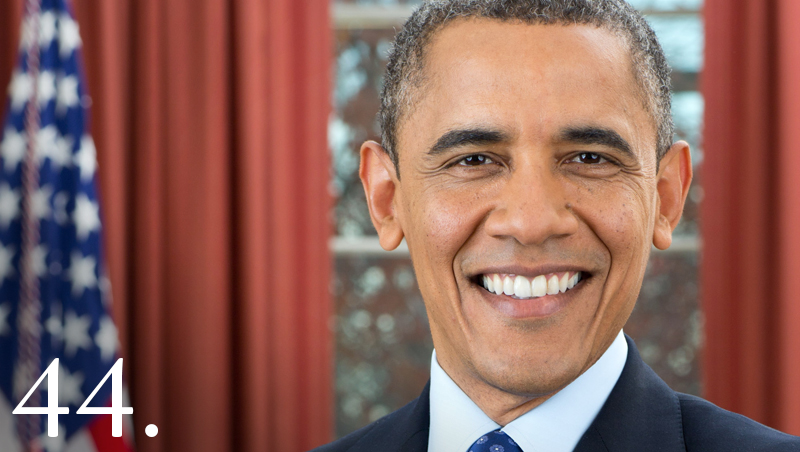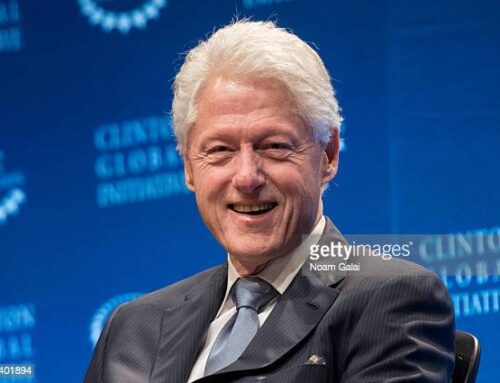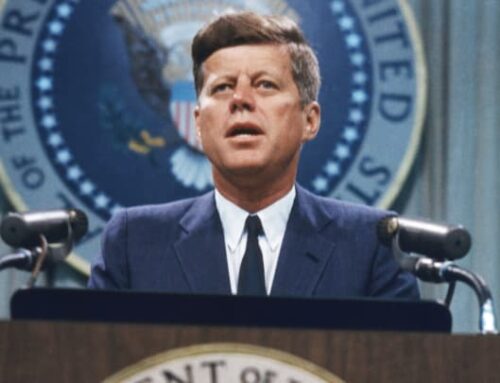
Barack Obama was the 44th President of the United States, serving from 2009 to 2017. He was the first African American to be elected President, and several significant domestic and foreign policy achievements marked his presidency.
In 1961, Obama was raised by his mother and grandparents in Honolulu, Hawaii. He attended Columbia University and later graduated from Harvard Law School, where he was the first African-American president of the Harvard Law Review.
After completing his education, Obama worked as a community organizer in Chicago and later served as a state senator in Illinois. In 2004, he was elected to the U.S. Senate, and in 2008, he was elected President, defeating Republican nominee John McCain.
As President, Obama is perhaps best known for his efforts to reform the healthcare system and address issues of income inequality. He signed the Affordable Care Act, also known as Obamacare, which expanded access to healthcare and protected individuals with pre-existing conditions. He also passed the Dodd-Frank Wall Street Reform and Consumer Protection Act, which aimed to prevent another financial crisis like the one that occurred in 2008.
In foreign policy, Obama oversaw the withdrawal of U.S. troops from Iraq and the successful operation that resulted in the death of Osama bin Laden, the leader of the terrorist group Al-Qaeda. He also worked to improve relations with Cuba and reached a historic agreement with Iran to limit its nuclear program.
Despite these accomplishments, Obama faced challenges during his presidency, including criticism for handling the Syrian civil war and the rise of ISIS. After leaving office, he returned to private life and continues to be active in public service and charitable work. He is remembered as a thoughtful and compassionate leader who worked to address important issues facing the country.
So now the question is What to learn about finance from Barack Obama?
Since he declared his run for the presidency and won the candidacy from the democratic party, he was like a celebrity. So even after his term ended, he was in the limelight. As his age permits him to be active in politics and influential Figures with the Nobel Peace Prize. Even before being elected president, he was a law student. So for some time he was practicing and earning money. His salary from the senate. In simple words, in 2004, He earned a salary of $80,287 from the Illinois Senate and $32,144 from the University of Chicago Law School, where he lectured. Obama also had investments in three different assets — including the Vanguard Wellington Fund — evaluated between $100,000 and $200,000.
Even before the Presidency, the Audacity of hope and dream my father made famous. 2004 Democratic National Convention speech which made him famous was like a turning point. Obama received a multi-book deal with Random House and was given a $1.9 million advance after January 2005 for “The Audacity of Hope,” plus royalties, following his appearance at the 2004 Democratic National Convention. He also earned just over $847,000 that year from another book advance for “Dreams From My Father,” plus $378,237 from additional book royalties. in 2006, Obama reported book royalties for “Dreams From My Father” of a little less than $150,000, plus $425,000 from royalties for “The Audacity of Hope.” In 2007, Obama earned almost $3.3 million from Random House book royalties and almost $816,000 from Dystel & Goderich for “Dreams From My Father.” He acquired U.S. Treasury notes valued between $500,000 and $1 million, and he invested in two 529 college savings plans — valued at between $50,000 and $100,000 each to start — for his daughters. One thing is sure he is a very good investor.
Since leaving the White House, Barack Obama has continued to do very well for himself financially. The former president released the first volume of his memoir, “A Promised Land,” in November 2020; by December 2020, it had sold 3.3 million copies, becoming one of the top-selling political memoirs in history. Aside from the success of his memoir, Obama and former First Lady Michelle Obama also signed a lucrative Netflix deal in 2018. In 2018, Obama and his wife, former first lady Michelle Obama, signed a deal with Netflix. Their production company, Higher Ground Productions, in April, unveiled a total of seven films and series that would be developed under the deal. Their first documentary, about a glass factory in Ohio owned by a Chinese investor, debuted in August.
Obama has an estimated net worth of $70 million, according to Celebrity Net Worth, in part due to earning $400,000 a year throughout his entire eight-year term as president of the United States. On April 15, 2016, Obama released his 2015 tax returns, which showed that the former president and Michelle Obama filed jointly and reported an adjusted gross income of $436,065. They paid $81,472 in taxes according to their 18.7% tax rate. They also donated a total of $64,066 to more than 30 charities.
If I am talking about Obama and not talking about the Affordable Care Act, it will not be right.
During his campaign, President Obama promised to reform the country’s healthcare system, which had left millions of Americans uninsured. He proposed the Affordable Care Act, which aimed to make healthcare more affordable and accessible for all Americans. The Affordable Care Act had a significant impact on the country’s financial landscape. It required all Americans to have health insurance, and it provided subsidies to help lower-income individuals afford coverage. It also expanded Medicaid, a government health insurance program for low-income individuals.
The Affordable Care Act, also known as Obamacare, had several financial implications for individuals, businesses, and the government.
Individuals: The Affordable Care Act required all Americans to have health insurance, and it provided subsidies to help lower-income individuals afford coverage. This helped to increase the number of insured Americans and reduced the burden of medical expenses for many individuals. However, some individuals faced higher insurance premiums, particularly those who were not eligible for subsidies.
Businesses: The Affordable Care Act required employers with 50 or more full-time employees to provide health insurance to their workers or face penalties. This increased costs for some businesses, particularly small businesses. However, the law also provided tax credits to small businesses to help them afford the cost of providing insurance.
Government: The Affordable Care Act expanded Medicaid, a government health insurance program for low-income individuals. This increased costs for the government, as it had to fund the expansion of the program. However, the law also included revenue-raising measures, such as a surtax on high-income individuals and a tax on insurance companies, to help offset these costs.
What do I learn from Barack Obama About finance?
Leadership in times of crisis is very much needed. I am very much Old school economist. so I believe that giving money to the right people who can consume will help make your economy better.



